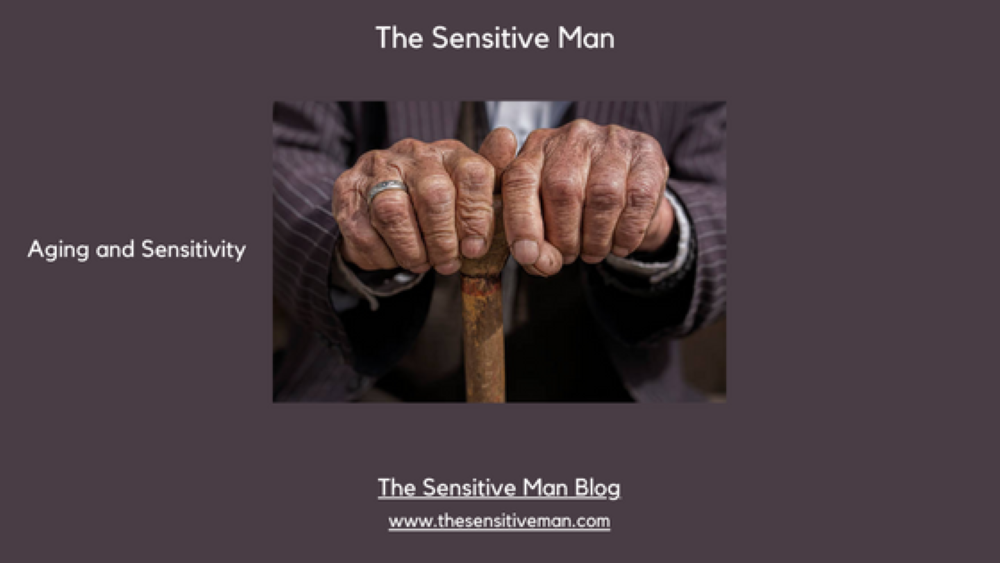|
A Blog about Sensory Processing Sensitivity from the Worldview of a High-Sensing Male
As we age, we change. That is a fact of life. Aging brings about a change in perceptions, physiology, and personalities. But, unfortunately, there is a price to pay for our wisdom and accumulated experience. Wear and tear on our bodies; that's the human way. HSPs are no different. Our bodies age like everyone else, with the attendant changes and erosion of long-held capabilities. But do we, as highly sensitive people, have changes in our sensitivity as we grow older? That question was looked at in a 2019 study from Japan. Does high sensitivity change with age? A single study. The study suggested that several personality traits on the Big Five Personality test change as we age. Those traits, openness, and neuroticism, appear to change inversely in older adults, with openness growing and neuroticism declining as people age. The study's authors correlated three HSP traits: 1) low sensory threshold, 2) ease of excitation, and 3) aesthetic sensitivity (deemed spirituality in the study) to the Big Five traits noted above. In addition, it was stated in previous studies that openness tends to increase with age and that neuroticism declines with age. In the HSP study, the attributes of low sensory threshold and ease of excitation were correlated with the personality trait of neuroticism. In addition, the HSP attribute of aesthetic sensitivity was associated with openness. The authors hypothesized that the HSP traits would follow the aging patterns seen in the Big Five traits. The study's conclusion bore out the hypothesis and suggested that some of the HSP traits decline or increase depending upon the attribute as we age. Why this makes sense. Because we lose sensory processing ability as we age, this makes sense. Those traits that correlate with sensory inputs would understandably lose ability with aging due to diminished capacity in older individuals. The HSP cycle of perception often begins with the processing of sensory data; if that capacity is declining, then naturally, our excitation and the low sensory threshold would be impacted. The study seems to confirm that they both appear to decline with age. Conversely, the aesthetic sensitivity trait increased with age, corresponding to the findings about openness linearly increased with age in previous studies. Aesthetic sensitivity is a higher-order emotional processing trait, as is spirituality, which is typically internally processed and seems to mature with age. With added experience, you might conclude that this internal processing would be enhanced with increased age. That makes sense. The conclusion suggests these attributes may change over time (aging) based on the task and the environment. These may affect the outcomes and make generalizing the conclusion more problematic. More study is needed. The Study The study surveyed approximately 1900 Japanese adults measured across three dimensions of sensory processing sensitivity noted, and participants were of a wide range of ages. Although this is a single study, it's worth noting. The authors suggested that improvements to future studies could include longitudinal studies, increasing the number of aspects studied, and doing more cross-cultural studies to factor out cultural biases. My Observations I have often wondered if personality doesn't change over time, with the increased experience and effects from environmental factors. This would include SPS. One question for the HSP study is whether high sensitivity diminishes over time or becomes ameliorated with experience and life adjustments. I know in my own experience, as I age, it seems that I have mellowed on some of the more extreme emotions/reactions that would have been more pronounced and visible at an early age. However, I am not suggesting that the trait completely changes. No, I believe it stays as constant as anything can with the passage of time. Still, we need more studies to support the idea that the core attributes remain with us throughout our lives but may gain or decline based on physical aging, how we learn to cope with some of the challenges HSPs face, and how we develop strategies to thrive. What do you think?
0 Comments
|
AuthorBill Allen currently lives in Bend, Oregon. He is a certified hypnotist and brain training coach at BrainPilots.com. He believes that male sensitivity is not so rare, but it can be confounding for most males living in a culture of masculine insensitivity which teaches boys and men to disconnect from their feelings and emotions. His intent is to use this blog to chronicle his personal journey and share with others. Archives
July 2024
Categories
All
|


 RSS Feed
RSS Feed
